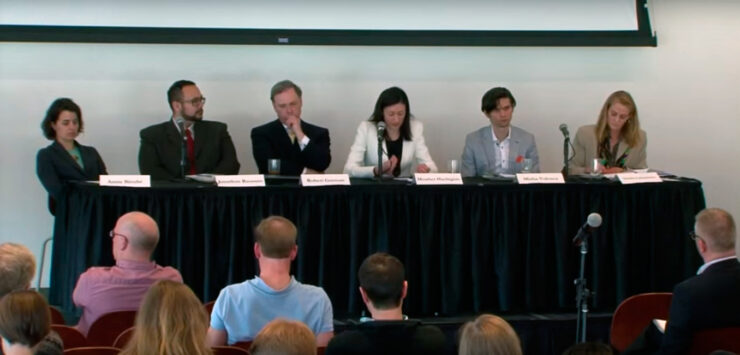To Sleep or Not to Sleep, that is the question
Sleep is integral to maintaining our health and cognition. In the current state of our world, sleep loss and sleep deprivation has become a very common experience for people of all ages around the world. Naturally, sleep has become a very popular topic of research. This surge in sleep research has revealed its importance in memory, attention, and cognition.
But how does sleep loss affect our ability to make decisions?
Zhuo Fang, a data scientist in the faculty of social science at the University of Ottawa, wanted to answer this exact question.
Fang, alongside colleagues from the University of Pennsylvania worked together to explore how sleep loss can affect risky decision-making and brain activation in their recently published study.
The experiment
The team conducted a study involving a total of 56 adults who spent five days in the research laboratory. The experiment used functional magnetic resonance imaging (fMRI), a common imaging technique which examines changes in the brain by tracking blood flow. Each participant’s brain was scanned twice: once when they were well rested, and a second time after they had lost one night of sleep. The goal of the experimental setup, according to Fang, was to mimic realistic decision-making as closely as possible.
As such, participants were each shown a balloon on screen and handed a button, allowing them to inflate the virtual balloon. She explained that every time the button was pressed, their balloon would inflate, the bigger the balloon got, the higher their prize money became. But, every time the balloon was inflated, there was a chance that it might (virtually) pop; if the balloon exploded… they wouldn’t receive any prize money and lose a certain amount of prize they earned in the previous inflations. At any point during this experiment, participants were able to choose when to stop inflating and collect their monetary reward.
This is called ‘the balloon analog risk task’, and it was used to assess a person’s tendency to take chances and make risky decisions. Participants performed this task twice in the scanner
when their brains were scanned; once when fully rested and again when sleep-deprived for one night.
What were the results?
The scientists found that when fully rested, certain regions of the participants’ brains would strongly activate in response to the feedback of gaining or losing money. These brain regions included the striatum and insula which are both heavily involved in risk-reward decision making.
However, these same regions of the brain would not react at all to the feedback of winning or losing in the same individuals who were sleep-deprived. What could this possibly mean?
“We [believe] these results indicate that one-night of sleep deprivation may decrease people’s emotional response to the risk and outcome of their behaviour,” said Fang.
Interestingly, the results of this research did not show any noticeable difference in risk-taking behaviour between the well-rested and sleep-deprived groups. The real changes seemed to only be found in the neural responses of their brains.
Future research
In terms of long-term goals, Fang explained, “We know that there might be some relationship between brain activation and sleep deprivation…We want to try our best to measure as much of the spectrum as we can.” She hypothesised the effects of sleep deprivation on brain activity could be linked to emotional factors, personality traits, and possibly even gender.
Fang added that a second long-term goal of this research is to learn, “whether our brain activation and our cognitive ability can recover,” from the effects of sleep deprivation and how long that would take.
To reach strong conclusions to these goals, future studies with greater sample sizes will need to be carried out.
“I think the implication of the study is to tell everyone to try your best to get enough sleep if you can. And Don’t stay up too late…we’ve found that there might be no impact on behaviour yet, but there’s already some impact on our brain,” warned Fang.
For those interested in learning more about Fang’s research visit her Google Scholar profile here.





